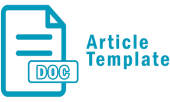The Implementation of Distance Learning Policy in The Covid-19 Pandemic Era Through The Blended Learning Method in Pancasila and Civics
Abstract
The implementation of remote policies is the answer from the Government to the problems in the world of education caused by the Covid-19 pandemic in Indonesia. The many limitations in implementing remote policies during this pandemic, cannot be separated from the problems that occur during the implementation process. Educators play an important role in the successful implementation of remotely, required to innovate and be creative in conveying learning amid all existing limitations. Therefore, this study aims to find out "The extent to which blended learning methods can help in implementing distance learning policies at SMA Labschool UPI Bumi Siliwangi". The approach in this writing uses Qualitative, with the Case Study method. The results of the study showed; 1). From the educator's point of view: a) In terms of time flexibility, the learning process can be done anywhere and anytime, b) In terms of administrative more neatly, c) In terms of administrative more neat, d) More cost-effective, e) In terms of Pancasila education and citizenship, providing a space of persuasion for educators and students. 2). Student point of view a) Able to increase the spirit of learners' learning motivation, b) Help learners better understand learning materials, c) Provide discussion space for educators and learners in PPKn subjects.
Keywords
Full Text:
PDFReferences
Arif, D. B. (2017). Pengembangan kebajikan kewargaan (civic virtue) dalam masyarakat multikultural Indonesia: Peran pendidikan kewarganegaraan. Journal Civics and Social Studies, 1(1), 1–12.
Baragash, R. S., and Al-Samarraie, H. (2018). An empirical study of the impact of multiple modes of delivery on student learning in a blended course. The Reference Librarian, 59(3), 149–162.
Candra, H. W., dan Aýuni, M. R. Q. (2018). Pengembangan bahan ajar dalam pembelajaran sejarah kebudayaan Islam berbasis observasi di smk mulya bhakti mandiri Cianjur. Atthulab: Islamic Religion Teaching and Learning Journal, 3(1), 13–21.
Deschacht, N., and Goeman, K. (2015). The effect of blended learning on course persistence and performance of adult learners: A difference-in-differences analysis. Computers & Education, 87, 83–89.
Dewi, F. C., dan Yuniarsih, T. (2020). Pengaruh lingkungan sekolah dan peran guru terhadap motivasi belajar siswa. Jurnal Pendidikan Manajemen Perkantoran, 5(1), 1-13.
Hidayah, N. (2020). Efektifitas blended learning dalam proses pembelajaran. Pencerahan, 14(1), 10–24.
Jamaludin, A. A., Dwiyogo, W. D., dan Hariyanto, E. (2018). Pembelajaran senam berbasis blended learning guna meningkatkan hasil belajar. Jurnal Pendidikan: Teori, Penelitian, dan Pengembangan, 3(10), 1373–1382.
Knott, H. (2020). Assessment strategies for online learning: Engagement and authenticity. Distance Education, 41(4), 600–603.
Munawar, B., Hasyim, A. F., & Maâ, M. (2020). Pengembangan bahan ajar digital berbantuan aplikasi animaker pada paud di Kabupaten Pandeglang. Jurnal Golden Age, 4(02), 310-321.
Pribadi, R. E. (2017). Implementasi sustainable development goals (sdgs) dalam meningkatkan kualitas pendidikan di Papua. E-Journal Ilmu Hubungan Internasional, 5(3), 917-932.
Purwanti, H., dan Nugroho, A. A. (2016). Analisis kemampuan komunikasi matematis mahasiswa dalam menyelesaikan masalah pada mata kuliah program linear. JIPMat, 1(2), 127–134.
Setyadiharja, R., Dachroni, R., dan Suherry. (2018). Implementasi kebijakan pembangunan desa pesisir Kabupaten Bintan Provinsi Kepulauan Riau. JIP (Jurnal Ilmu Pemerintahan): Kajian Ilmu Pemerintahan dan Politik Daerah, 3(2), 89–119.
Stainback, S., and Stainback, W. (1984). Methodological considerations in qualitative research. Journal of the Association for Persons with Severe Handicaps, 9(4), 296–203.
Utami, A. P., Florentinus, T. S., and Ahmadi, F. (2021). Development of e-learning with schoology in hybrid learning strategy for listening skill of tadulako university. Innovative Journal of Curriculum and Educational Technology, 10(1), 22–29.
Zainuddin, Z., & Keumala, C. M. (2018). Blended learning method within Indonesian higher education institutions. Jurnal Pendidikan Humanioraurnal Pendidikan Humaniora, 6(2), 69–77.
DOI: https://doi.org/10.17509/civicus.v21i2.45638
Refbacks
- There are currently no refbacks.
Copyright (c) 2021 Nika Nur Aliantika

This work is licensed under a Creative Commons Attribution-NonCommercial-ShareAlike 4.0 International License.
Our journal indexed by :
Jurnal Civicus is published Univesitas Pendidikan Indonesia in collaboration with Indonesia Association Profession of Pancasila and Civic Education/Asosiasi Profesi Pendidikan Pancasila dan Kewarganegaraan (AP3KnI).

Jurnal Civicus is licensed under a Creative Commons Attribution-NonCommercial-ShareAlike 4.0 International License.





__.png)










